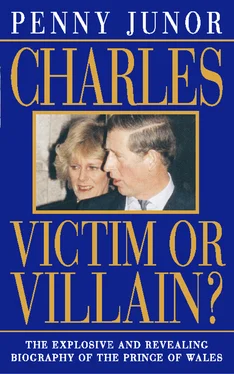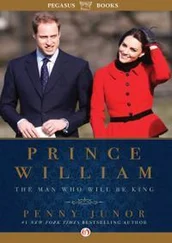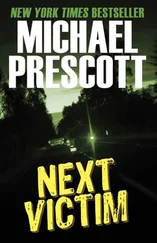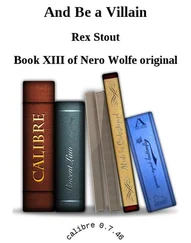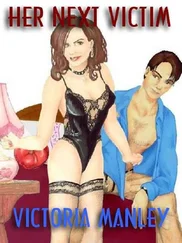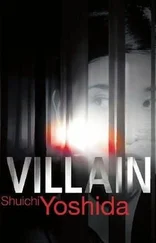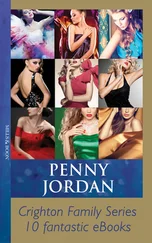Charles Spencer
In the days following Diana’s death, the future of the monarchy hung perilously in the balance. As the mountain of flowers outside her Kensington Palace home grew ever higher, spreading further and further into the park, the people of Britain, stunned, shocked and numb with grief, looked for someone to blame for their awesome sense of loss.
The national reaction to Diana’s death bordered on hysteria. Few of the people who mourned had ever met the Princess, yet her compassion and vulnerability had touched a chord deep in the public psyche. Everyone grieved for the stranger whom they felt they knew, with a depth of feeling never before shown for a public figure. Months later, counsellors were still treating people who had been unable to come to terms with their grief. In a rather studied tribute, the Prime Minister, Tony Blair, called her ‘the people’s Princess’, and it was the perfect epithet: the people felt she cared and spoke for them, and in a curious way she probably took greater comfort from her relationship with strangers than with almost anyone else.
‘I feel like everyone else in this country,’ said Tony Blair. ‘I am utterly devastated. We are a nation in a state of shock, in mourning, in grief. It is so deeply painful for us. She was a wonderful and a warm human being. Though her own life was often sadly touched by tragedy, she touched the lives of so many others in Britain and through the world, with joy and with comfort. She was the people’s Princess and that is how she will remain in our hearts and memories for ever.’
Whatever the psychological and sociological explanations for the nation’s reaction to her death might be, there was not only grief, but also anger on the streets of London – anger directed in very large part at the Royal Family. As Charles had instinctively feared would happen, some went so far as to suggest that he was responsible for her death. Had he loved her instead of his mistress, they said, this would never have happened. They would still have been married and she would never have been in a car racing through the streets of Paris with Dodi Fayed. Yet at the same time others were leaving tributes to both of them outside Kensington and all the other palaces, ‘To Diana and Dodi, together for ever’, and paying eulogies to the man who had brought Diana true love and happiness.
There was also anger at the tabloid press, which encouraged the paparazzi by paying such huge sums of money for photographs and stories. In the weeks before her death, the red-top papers, and some of the broadsheets too, had been full of long-lens photographs of Diana and Dodi canoodling on his father’s yacht in the South of France. Diana’s brother, Earl Spencer, had not held back when he heard the news at his home in South Africa. ‘I always believed the press would kill her in the end,’ he said. ‘But not even I could imagine that they would take such a direct hand in her death as seems to be the case.’ At that time it was thought the paparazzi were entirely responsible for the accident; and he said that the editors and proprietors of every newspaper which had paid money for intrusive pictures of his sister had ‘blood on their hands’. The public, of course, had not been slow to buy these newspapers, all of which argued a vicious circle of supply and demand. But this was not the time to draw too much attention to hypocrisy.
Strangely, no blame was ever levelled at Dodi, or even his father, who had provided the car they were travelling in, and who also employed the driver, Henri Paul. He had not been the regular driver and, it soon transpired, he had been several times over the drink-driving limit that night. The proper driver had been sent off in a decoy car. It was an elaborate attempt to try to foil the paparazzi, who were all waiting outside the Ritz Hotel, where they had had dinner that night, ready to follow them home. Yet Dodi failed to make the driver slow down, and he was doing well over 100 mph when he ploughed into the underpass. Almost overnight, the paparazzi ceased to be seen as the sole cause of the accident. Afraid that the tables might turn and that, as Henri Paul’s employer, he might find himself liable, Mohamed al Fayed shared his own private theory about the crash with the press. It was, he suggested, a conspiracy cooked up by the Queen and the security services to assassinate Diana so that she would not marry Dodi; such a marriage would have given William, second in line to the throne of England, a Muslim and Egyptian step-father. It was a ludicrous notion invented by a man who had spent the months since his son’s death telling lies about Diana’s last words, which medical evidence suggested could never have been uttered. Yet in the spring of 1998 he was given airtime on ITV to explain why he believed the Queen had murdered Diana and Dodi. His words were picked up not only in Britain but in Egypt, and as a result the Queen’s life is now at risk. Her security arrangements have necessarily been stepped up considerably, so much so that a friend whom she was visiting recently said over dinner, ‘Ma’am, I thought things were supposed to be better with the IRA these days.’
‘No,’ the Queen replied. ‘They think there’s a good chance I’m going to be killed by a Muslim.’
The Queen would no doubt have been horrified by a marriage between Diana and Dodi, and William and Harry no less appalled. And they would not have been alone. Millions of people were shocked by the overtly sexual nature of the relationship, which Diana seemed to be flaunting so brazenly to the press. No one was labouring under the illusion that she was still the shy, blushing innocent Princess. Her various well-documented affairs had put an end to that. Apart from the much publicised revelations about James Hewitt, she had been publicly blamed by the wife of rugby player Will Carling for destroying their marriage. In his autobiograpy, published in October 1998, Carling was coy about the relationship, saying, ‘I was attracted to her but I never made a pass at her. To be honest, if I had had a sexual relationship with her I wouldn’t say I had. I don’t think that would be right.’ At the time, however, he boasted quite openly to his friends about the sexual nature of his relationship with Diana.
The press was becoming increasingly critical of Diana’s conduct. She had subjected her boys to Dodi and, worse still, to his father, and she was paying the price.
‘The sight of a paunchy playboy groping a scantily-dressed Diana must appal and humiliate Prince William …’ wrote Lynda Lee-Potter in the Daily Mail on 27 August. ‘As the mother of two young sons she ought to have more decorum and sense.’
‘Princess Diana’s press relations are now clearly established,’ wrote Bernard Ingham for the 31 August edition of the Express . ‘Any publicity is good publicity … I’m told she and Dodi are made for each other, both having more brass than brains.’
On the same day, Chris Hutchins wrote in the Sunday Mirror , ‘Just when Diana began to believe that her current romance with likeable playboy Dodi Fayed had wiped out her past liaisons, a new tape recording is doing the rounds of Belgravia dinner parties. And this one is hot, hot, hot! I must remember to take it up with Diana next time we find ourselves on adjacent running machines at our west London gym.’
But then, suddenly, the music stopped and, as in the party game, all those who were still moving were caught out. Overnight, Diana found instant beatification; pity those columnists who had committed their thoughts to print on the Saturday afternoon, little knowing that their target would be a saint by the time their words hit the streets on Sunday.
‘She was the butterfly who shone with the light of glamour which illuminated all our lives,’ wrote Ross Benson in the Express ; ‘A beacon of light has been extinguished,’ said Lady Thatcher, the former Prime Minister; ‘A comet streaked across the sky of public life and entranced the world,’ wrote Simon Jenkins in The Times ; and Paul Johnson in the Daily Mail called her ‘A gem of purest ray serene.’
Читать дальше
